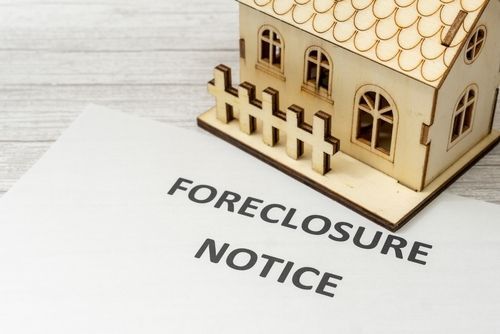NJ Foreclosure Rates Update and How Veitengruber Law Can Help

Several factors have led to the increased foreclosure rate across the country, and New Jersey is not immune to this trend. If you are a New Jersey homeowner, it is important to understand the factors leading to an increased rate of foreclosure in NJ as well as what steps to take if you find yourself facing foreclosure.
The foreclosure data for the first quarter of the year are in, and Americans are losing their homes in foreclosure at a faster rate in 2023. Several factors have led to the increased foreclosure rate across the country, and New Jersey is not immune to this trend. For years, NJ has ranked in the top five states with the highest rate of foreclosure. If you are an NJ homeowner, it is important to understand the factors leading to an increased rate of foreclosure in NJ as well as what steps to take if you find yourself facing foreclosure.
What is the rate of foreclosure in New Jersey?
During the first quarter of 2023, the US average of foreclosures was one in every 1,459 households. In New Jersey, the average was one in 824 households. NJ has the third highest foreclosure rate, behind only Illinois and Delaware. NJ's foreclosure rates are also impacted by the foreclosure rates of the major metropolitan areas around it. Much of NJ is strongly tied to either Philadelphia or New York City. In Q1 of 2023, NYC saw 4,674 properties enter foreclosure, and Philadelphia saw 1,985 properties enter foreclosure.
Why are foreclosure rates increasing?
Last year, real estate and finance experts predicted a return to pre-pandemic foreclosure rates and their predictions are coming true. During the COVID-19 pandemic, the federal and state governments put many protections in place to stop foreclosures from happening and keep homeowners in their homes. They did this to prevent an avalanche of foreclosures during a time when people were experiencing job and income loss, quarantine, and medical crises. During the pandemic, the rate of foreclosure plummeted. Since the foreclosure moratorium was lifted, banks and lenders can again pursue foreclosure.
As banks and lenders try to make up for lost time, other factors also contribute to the increase in foreclosures. Those include:
- Inflation: Across the US, consumers are struggling with inflation. 2023 has seen the worst inflation since 1981. Put simply, consumers are paying more for less. Homeowners are spending more on essential goods and services and increased interest rates. The effects of inflation can make it impossible fo homeowners to keep up with their mortgages, leading to foreclosure.
- Unemployment: NJ ranks 15th in the country for unemployment. While the NJ unemployment rate has steadily dropped since early in the pandemic, this number does not paint a complete picture of the reality of NJ workers and homeowners. Because NJ has one of the highest costs of living in the US, even those employed can struggle to keep up with the financial demands of homeownership in NJ.
- Housing Market Vulnerability: Because of NJ's high cost of living, housing can be unaffordable even in ideal economic conditions. Given the current bumpy economy, purchasing a home in NJ can be difficult for the average person. NJ's most vulnerable housing markets will be the NYC and Philadelphia suburbs.
Should NJ homeowners be concerned?
Yes and no. While the economy, in general, is a bit precarious right now, homeowners with solid financial footing should not fear foreclosure just because foreclosure rates are rising. However, homeowners everywhere should be aware of the foreclosure trends in their area.
One big reason for the high foreclosure rate in NJ specifically is that NJ has one of the most prolonged foreclosure processes in the country. As a judicial foreclosure state, foreclosures must be processed within the court system. Court proceedings can take much longer than the process in non-judicial states. The foreclosure backlog built up in the NJ court system has also been impacted by many foreclosures put on hold during the pandemic. Many of the loans entering the foreclosure process this year are old and have been in trouble for years but are just now entering the court system. Not to say that the rising foreclosure rate in NJ is inflated, but this backlog is a contributing factor to the high rates.
NJ foreclosure rates are increasing for many reasons, but the average homeowner should not be overly concerned about these rates. Foreclosure levels are reaching pre-pandemic levels, but the recent increase in foreclosures is more of a return to "normal" levels instead of indicating that the state's economy is poor or that there is weakness in NJ's housing market. However, it is crucial to be proactive if you worry you may lose your home to foreclosure by contacting a foreclosure attorney.
What can a foreclosure attorney do for me?
An experienced foreclosure attorney can help you prevent foreclosure from happening and help you keep your house when it does. Here is some of the legal help you can expect:
- Decrease the original amount of the loan. A foreclosure attorney experienced with negotiations may be able to convince your bank to decrease the overall amount of the loan to make payments more manageable.
- Assist with a loan modification. A loan modification can adapt the terms of your loan to make monthly payments more manageable. A foreclosure attorney can help you submit an application mortgage providers should accept.
- Apply foreclosure defense techniques. In court, a foreclosure attorney can use the law in your favor to defend your homeowner's rights.
- Extend time in the home. Whether you are working towards retaining homeownership or just trying to buy more time to figure out your next step, a foreclosure attorney can help you stay in your home longer.
Foreclosure is stressful and can be a daunting, long, complex legal process in NJ. Working with an experienced and professional foreclosure defense attorney can help ease some of this anxiety. Veitengruber Law is here to help. We have experience in New Jersey foreclosure law. We can provide the compassionate support and legal advice you need to save your home.










